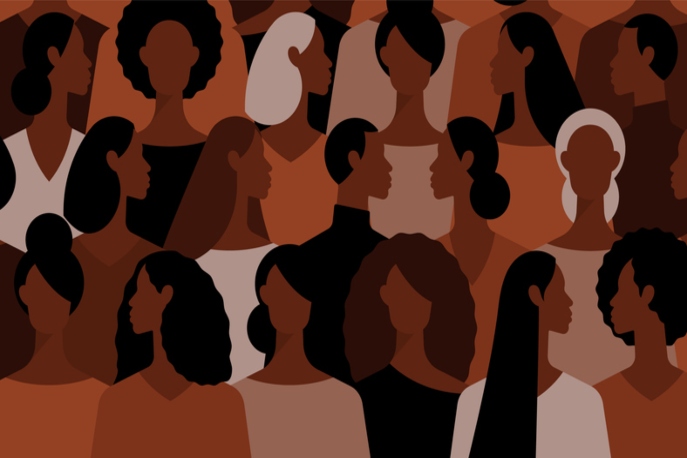Photo Credit: Atlas Studio
Happy Black History Month! Throughout American history, Black women have been at the forefront of feminist causes. This month, we are proud to take the time to recognize and honor the legacies of some Black women throughout history who helped advance the sexual violence prevention and advocacy movement.
Harriet Jacobs
Born enslaved in the American South, Harriet Jacobs wrote her autobiography Incidents in the Life of a Slave Girl. This book was a watershed moment in the American literary tradition, as it was one of the first published discussions about sexual abuse and harassment experienced by enslaved African Americans. Sexual assault during the American slavery era is still rarely discussed, so we know texts like Jacobs’ continue to hold extreme importance in informing our understanding of our own history.
Ida B. Wells
Ida B. Wells is one of the most well-known and well-respected journalists in American history. Importantly, she discussed the overlap of racial and sexual violence, and how systems upholding racial divisions enable sexual harm against all women. Her research surrounding lynching and sexual exploitation faced by the Black community were vitally important to the abolitionist cause.
Recy Taylor
After a group of white men sexually assaulted her, Recy Taylor took her assailants to court. Despite receiving confessions from these men, they were never convicted. This injustice prompted Rosa Parks to launch the Alabama Committee for Equal Justice for Mrs. Recy Taylor. She has since received an apology from the Alabama Legislature for its miscarriage of justice, and a documentary about her story, The Rape of Recy Taylor, is available for viewing now.
Rosa Parks
While Parks is primarily known as the civil rights activist that became the face of the Montgomery Bus Boycott, she was also an advocate for sexual violence survivors. In addition to the previously mentioned Taylor case, she fundraised and advocated for several Black sexual assault victims including Gertrude Perkins, Flossie Hardman, and Joan Little. The latter’s case was particularly important as she “became the first woman in American history to win freedom by using self-defense against sexual assault in a homicide case.” Parks’ career-long advocacy, potentially stemming from an experience of attempted rape, demonstrates that she was a fierce voice in the #MeToo movement long before it had its name.
Anita Hill
Anita Hill is a powerful voice against workplace sexual harassment, best known for her testimony against then-Supreme Court nominee Clarence Thomas. To this day, she continues to speak out about workplace sexual harassment and other forms of gender-based violence (including lending her support to Christine Blasey Ford, another woman who spoke of her personal experience with sexual violence at a Supreme Court confirmation hearing). She has also been the Chair of the Hollywood Commission. Her book, Believing: Our Thirty-Year Journey To End Gender Violence, is available now.
Tarana Burke
Few social movements have had as lasting or as pervasive of an impact as Tarana Burke’s #MeToo movement. It began as a campaign on social media that allowed the world to see the sheer scope and ubiquity of sexual violence, and it continues to shape how workplaces, communities, and individuals see the issue. Today, in addition to her involvement with Me Too International, she writes about and does speaking engagements related to sexual violence around the world. Her books Unbound: My Story of Liberation and the Birth of the Me Too Movement and You Are Your Best Thing: Vulnerability, Shame Resilience, and the Black Experience are available now.
The wonderful thing about Black History Month is that we can find ways to honor Black history and Black equity every day. We know that the fight against sexual violence and racial oppression are interconnected, so it’s our duty to not just learn the history of Black women’s fight for liberation, but also to apply what we learn to how we support Black women employees today and every day.
Here are some ideas for turning learning into action for Black employees during Black History Month and year-round:
-Learn more about Black pay disparities and examine your policies to ensure that your employees are paid equitably.
-Follow the examples of companies that are doing great work in DEI and anti-racism.
–Support Black-owned businesses and nonprofits in your community.
-Start a book club. Perhaps read Confessions From Your Token Black Colleague: True Stories and Candid Conversations About Equity and Inclusion in the Workplace.
-Host a film screening, or promote films by Black filmmakers. Perhaps BOSS: The Black Experience in Business.
-Conduct an anonymous survey to allow employees to speak freely about areas of improvement they would like to see for people of color in your workplace.
Today and every day, we celebrate the accomplishments of the past and continue to look forward towards a future of racial and gender equity. Changing cultures is a long journey, so let’s work to carry the spirit of Black History Month with us all year!
RALIANCE is a trusted adviser for organizations committed to building cultures that are safe, equitable, and respectful. RALIANCE offers unparalleled expertise in serving survivors of sexual harassment, misconduct, and abuse which drives our mission to help organizations across sectors create inclusive environments for all. For more information, please visit www.RALIANCE.org.

